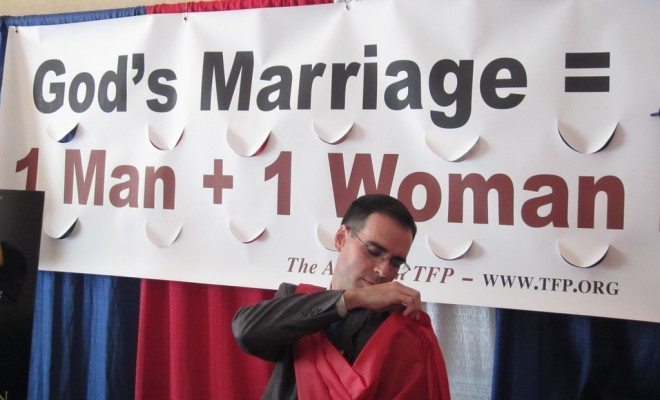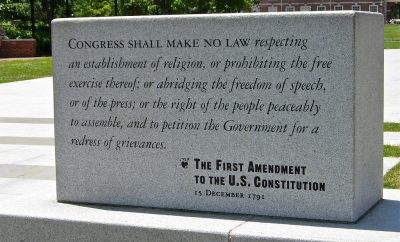 Image courtesy of [Talk Radio News Service Via Flickr]
Image courtesy of [Talk Radio News Service Via Flickr]
News
Same-Sex Marriage Legal in Most States: What Does the GOP Do Now?
Gay marriage is now legal in the majority of American states. The Supreme Court declined to take on cases in Indiana, Oklahoma, Utah, Virginia, and Wisconsin in which lower courts struck down the gay marriage ban. Given that the states of North Carolina, South Carolina, Kansas, Colorado, Wyoming, and West Virginia fall under the purview of the same appeals courts, gay marriage essentially has been legalized there as well.
Most Americans now live in a state where same-sex marriage is legal http://t.co/7XbvlUuirz pic.twitter.com/DPbAoZUf5T
— Conrad Hackett (@conradhackett) October 6, 2014
The speed with which the legalization of same-sex marriage has spread through the United States is nothing short of remarkable. The first state to legalize gay marriage was Massachusetts in 2004. Back then, it was pretty much revolutionary. The Defense of Marriage Act still existed, states were voting to ban same-sex marriage by droves, and sodomy laws had only just been struck down.
In just ten years the trajectory has changed dramatically. In 2004, less than a third of the American population supported legalizing same-sex marriage, now a clear majority does.
With the opinion on gay marriage shifting so dramatically, it’s easy to wonder what role the debate will play in the 2016 election. Will it even be a topic of conversation? Or is this a done deal — states are going to continue to legalize same-sex marriage, probably slowly, until we get to the point where same-sex couples can marry no matter where they are in the United States. Ten years ago, Massachusetts was almost revolutionary, now the practice is common place. In another ten years, will prohibiting gay marriage seem as archaic as the ban on interracial marriage?
Those questions, especially what will happen in 2016, are difficult to answer. There’s a chance that it will still be a topic of conversation, after all, GOP presidential hopeful Ted Cruz had a strong reaction to the news of the Supreme Court’s decision yesterday. He took issue with the court, saying:
This is judicial activism at its worst. The Constitution entrusts state legislatures, elected by the People, to define marriage consistent with the values and mores of their citizens. Unelected judges should not be imposing their policy preferences to subvert the considered judgments of democratically elected legislature.
Ted Cruz essentially said that it should be to the voters to decide whether or not to legalize same-sex marriage. He won the straw poll at the Values Voters Summit, held in Washington D.C. just a few weeks ago. The Values Voter Summit this year apparently focused heavily on anti-Muslim and anti-ISIS rhetoric, but there was still some LGBT-rights bashing as well. The National Organization for Marriage (NOM) was present, and it worked hard to try to convince attendees that the fight against same-sex marriage was by no means over. And some of the speakers did wax poetic about traditional marriage — Rick Santorum, for example, made an appearance.
But the question is, is the Values Voter Summit still representative of a large chunk of the Republican Party? And that’s not just a question that I, as an observer, am trying to answer. It seems to be a question that the Republican Party itself is having difficulty with.
The Republican Party is in a tough place — an issue that it’s worked on for a very long time is no longer really an issue. While it’s tough to tell whether or not the Party will still put any focus on the issue in the 2016 elections, it’s a choice that it is going to have to make for itself. But as more states move toward legalizing gay marriage and more Americans show their support, it will be a difficult choice to make.








Comments